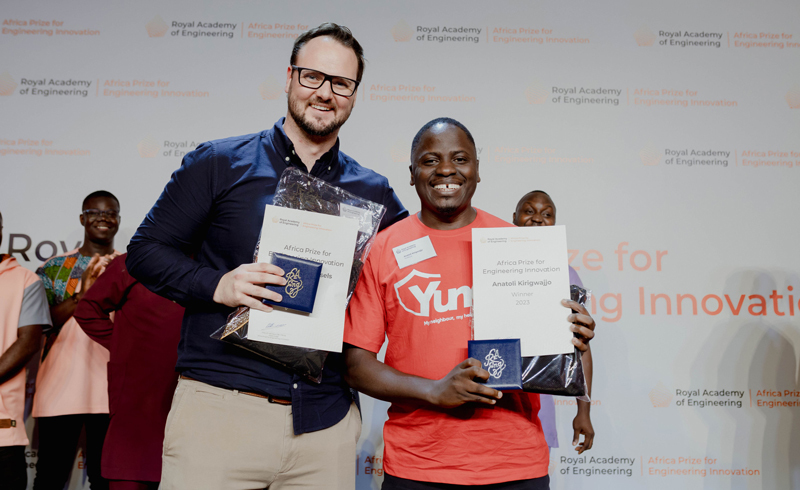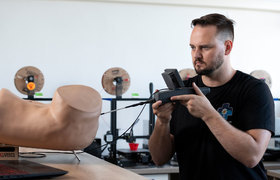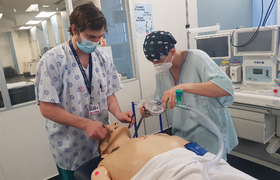FlexiGyn named joint winner of 2023 Africa Prize for Engineering Innovation
11 July 2023 | Story Staff writer. Photo Royal Academy of Engineering. Read time 3 min.
Edmund Wessels, the brain behind FlexiGyn – a groundbreaking, innovative and easy-to-use gynaecological device, designed to address and improve the health of women on the ground – is one of the joint winners of the 2023 Africa Prize for Engineering Innovation.
FlexiGyn allows gynaecologists to diagnose and treat uterine-related challenges without using general anaesthesia, and is considered a game-changer for women and girls living in under-resourced communities who struggle to access gynaecological care.
In June, Wessels, a University of Cape Town (UCT) PhD student was shortlisted as one of the top four African innovators in line to receive the Royal Academy’s Africa Prize for Engineering Innovation. The award was established in 2014, and remains the largest prize dedicated to engineering innovation. On Thursday 6 July, in Accra, Ghana, the Academy announced that Wessels and Anatoli Kirigwajjo from Uganda were the 2023 joint winners, and will each receive £25 000 (approximately R585 000). The two runners-up will each receive £10 000 (approximately R234 000).
“I am thrilled and humbled that FlexiGyn – and its contribution to the field of engineering, and female reproductive health in particular – has been recognised by the Royal Academy. It’s affirmation of all the hard work that has gone into this invention, and is testament that we are not the only ones who believe that the device will be a game-changer for women and adolescent girls who live in remote communities on the continent,” Wessels said.
An exceptional contribution
FlexiGyn was co-invented with Professor Sudesh Sivarasu, the director of UCT’s Biomedical Engineering Research Centre and the head of UCT’s MedTech. It is a portable device, fitted with a built-in camera attached to a small-diameter flexible scope. The device has been designed to provide user-controlled bending in multiple directions, and includes a display screen that provides clinicians with the best view of the uterus without causing the patient pain or discomfort. Thanks to its accurate mini-scope navigation tool, clinicians can access the uterus easily to pinpoint their diagnoses. The device is well-suited for a doctor’s office, as well as for clinics that lack proper medical infrastructure.
“This is only the beginning. I’m excited for what lies ahead, and to see the impact and difference the device will make in the lives of women and girls on our continent.”
Wessels’ visionary approach to healthcare has paved the way for an ongoing partnership with gynaecologists, obstetricians and general practitioners on the continent – creating a network of changemakers committed to expanding access to essential screenings and healthcare services in remote communities. The award reinforces his passion for innovation, his exceptional contribution to the field of engineering, and his dedication to solving one of the continent’s most pressing healthcare challenges.
“This is only the beginning. I am excited for what lies ahead, and to see the impact and difference the device will make in the lives of women and girls on our continent,” he said.
 This work is licensed under a Creative Commons Attribution-NoDerivatives 4.0 International License.
This work is licensed under a Creative Commons Attribution-NoDerivatives 4.0 International License.
Please view the republishing articles page for more information.










